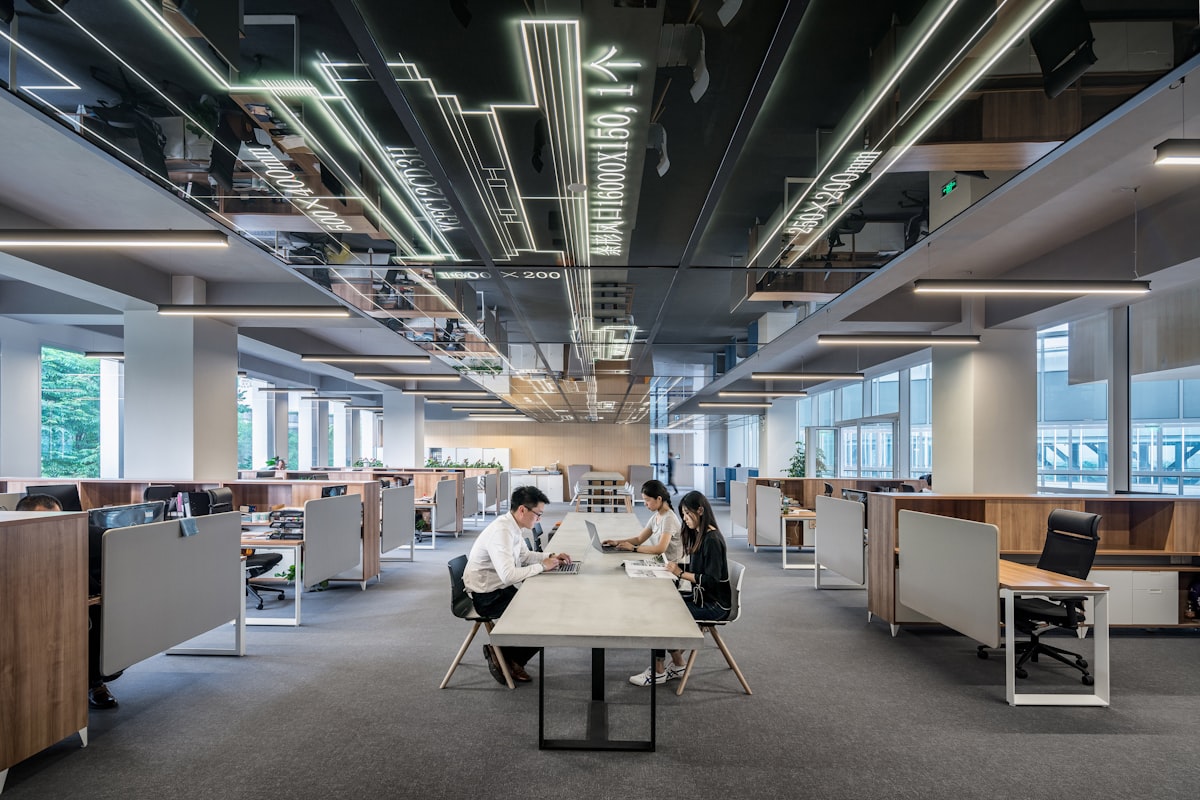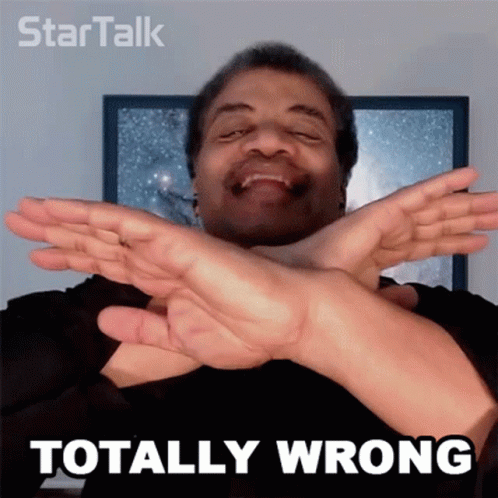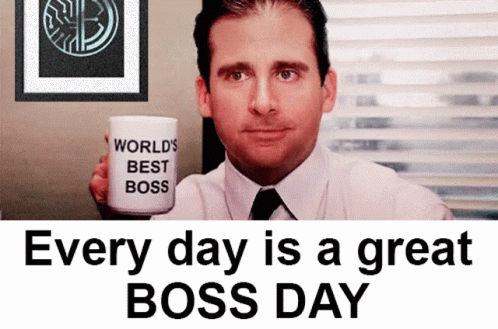Ten Pieces Of Advice For Your First Year At Work

Today, I begin my first deployment at Enterprise Singapore as an Assistant Development Partner. For the past year, I have rotated through the different functions at Enterprise Singapore as a Management Associate.
Since taking up a scholarship at SPRING Singapore, I have been looking forward to starting my first ''full-time job''. After finishing my graduate studies at the Lee Kuan Yew School of Public Policy, I felt equipped for the proverbial ''real world'' of civil service.
It turns out I was wrong. I found my first year challenging. I had to prepare policy decks, landscape scans, write memos, and organise company engagements. Even though this was the job I anticipated greatly, the learning curve was steep.
Here are ten pieces of advice someone gave me when I first started.
1) Drink From The Firehose

Like Chairman Peter Ong said, working at Enterprise Singapore is akin to drinking from the firehose.
As a MA, you will read more decks, reports and documents than you imagine. To drink from the firehose (and not drown) is to absorb and integrate an overwhelming flow of information into one's workflow.
Most people treat books, articles and memos like TV. They consume it passively. If you do the same for the documents you come across, you will suffer greatly.
In the recent book, Bold Vision: The Untold Story of Singapore's Reserves and Its Sovereign Wealth Fund, I learned how Dr. Goh Keng Swee, the architect behind the SAF, GIC and MAS, approached reading.
He would tape and transcribe interviews, get interviewees to correct any errors then pore over the corrected transcripts. He would underline the points that had caught his attention and scribble follow-up questions. In doing so, he was not just reading for a fun tidbit but actively integrating new information into his decision-making process.
If we read passively, we will end with a helpless feeling of confusion or amnesia. However, an active reader ends with an insight primed for action.
2) Talk Shop
"The best of life is conversation, and the greatest success is confidence or perfect understanding between sincere people." - Ralph Waldo Emerson in The Conduct Of Life.
If Emerson is right, the logical extension is that interesting conversations with colleagues are essential in helping us do our best work.
Enterprise Singapore is a big organisation, and there will be missing pieces in your work. Catch your colleagues for lunch to extract insights to plug your knowledge gaps.
I advise against meetings because it is only during the informal and causal settings that you get to catch what animates, excites and interests them. A meeting tends to tax their time and requires a structure to yield the most fruit.
Pro-tip: Keep your phone/ pocket notebook on hand to catch the moments of epiphany.
3) Influence Without Authority

As a MA, you have no authority. You might think this is a disadvantage. But, this is a perfect chance to practice your skills of persuasion and negotiation. Do not mistake this as a call to practice the dark arts of manipulation. Rather, see it as a way to create win-win outcomes, do this enough; you will be more influential than you think.
For example, as a junior officer, you will often be tasked with writing call reports. Do not dismiss this as a menial task. This is an underrated win-win outcome that I used to neglect. The call report you write will shape the follow-up actions of other officers (and even the bosses). You will also relieve the workload of your senior officers while honing the craft of writing.
In today's knowledge economy, authority is overrated. Focus on winning the hearts and minds of your peers and superiors.
4) Be Present in Your Current Role
We always want what we don't have. Coming in as a MA, you will want more say, responsibilities and a better title. (I know I did). But, remember, the entire point of this program is for you to maximise your learning. An excessive focus on the future will cause you to miss out on the knowledge you will acquire now. The time for added expectations, pressure and accountability will come. For now, focus on what's directly in front of you and seize the day!
5) Embrace The Suck
Hindsight is always 20/20. As I reflect on the most challenging moments in the past year, they have developed me the most. In those stressful moments, I had the chance to become better at what I do.
I liked what Nassim Taleb said - "Antifragility is beyond resilience or robustness. The resilient resists shocks and stays the same; the antifragile gets better."
Use the rare occasions of stress and chaos to your advantage, embrace the suck and find ways to become stronger from it.
6) Manage Your Work-Life Rhythm

At the same time, life should not suck all the time.
1 in 10 Singaporeans is obese. 3 in 10 Singaporeans only get 4-6 hours of sleep. 92% of Singaporeans report being stressed.
In university, we don't learn the 101s of managing your work-life rhythm, nor do we get a chance to take Introduction to Adulting. However, learning to manage yourself is perhaps the most important skill you must acquire.
There will be times you need to burn the midnight oil to get things done. There will also be times you will neglect your nutrition and exercise. But, those occasions should be far and few between. A big part of your life will revolve around work. But, life is also more than your work. Maintaining a healthy work-life rhythm will pay outsized returns in your long-term satisfaction.
7) Be Thick-Skinned

As an MA, you will get tons of things wrong.
I remember my first few months at Enterprise SG; I was a complete mess. I screwed up on small things like sending emails to the wrong people, not following proper communications procedures, and not knowing policy exceptions for grant processing.
My buddy and bosses would point out these mistakes to me candidly. At first, I felt uneasy. (After all, I put so much effort into every piece of work.) In retrospect, I have seen how critical it was that I listened instead of protesting.
Borrowing a Machine Learning analogy, an error is used to see how accurately a model can predict on data it uses to learn and detect new and unseen data.
In the same way, errors should not be seen as an indictment of our effort but as data points for us to update our knowledge map of the world.
8) Own Your Work
You will be tasked with projects you don't like or are not interested in. You will feel annoyed and upset. You might even be tempted to do the bare minimum.
This guttural feeling you feel, psychologists call it reactance.
Jonah Berger, a marketing professor at the University of Pennsylvania, describes it well:
People like to feel like they're in control—in the driver's seat. When we try to get them to do something, they feel disempowered. Rather than feeling like they made the choice, they feel like we made it for them. Just like a missile defense system protects against incoming projectiles, people have an innate anti-persuasion system — radar that kicks in when they sense someone is trying to convince them. Naturally, they push back.
In an ideal world, we will be left to our own devices. In reality, like the driver in peak hour traffic, we have less autonomy than we like. The next best thing to do is to own your work.
Be proud of your effort. Talk about it to your friends. It's not just a PowerPoint deck you are putting together; it's a narrative of the world that you hope to convince your boss of.
It sounds vapid if you view "owning your work" as a cheap psychological trick. If you view it as a belief providing you with the necessary stamina to churn quality work regardless of your interest, you will discover that it is the first step towards loving your work and learning well.
9) Have Empathy for your Boss

Sometimes things don't go your way and you don't understand your boss's intentions. There will be times when you feel straight-up frustrated because you think your bosses contradict themselves. Trust me; I have felt that.
It's tempting to lament or gossip about them. However, what I have learnt from the best of my colleagues is that we ought to try and empathise with them. Rather than take their words too literally, find ways to distil the higher-order considerations they have in mind.
This is an excellent way to train your ''strategic-thinking skills'' and is more productive than sulking.
10) Find Your Mates
One of my favourite writers, CS Lewis, wrote in his book, The Four Loves, on the value of friendship, "Friendship is unnecessary, like philosophy, like art.... It has no survival value; rather it is one of those things which give value to survival."
Your first year in Enterprise SG is all about survival. All you are trying to do is to figure out what the organisation's day-to-day operations look like and whether this is a place where you will thrive.
You can go at it solo and lead life like a lone ranger. You will survive.
But that would suck all the joy out of work. It would be wiser to take Lewis'Lewis' advice - make friends with your fellow MAs. The greatest joy of work in the past year was the chance to ''and chill with my fellow MAs. Trust me, go out and make friends with your MAs. After all, you cannot spell mates without the words ''MA''.
That's ten pieces of advice from my first year.
I am only one year in and have plenty more to go in my life, but it has been one crazy ride of growth. I can only hope that the school of life will offer greater lessons and opportunities in the coming years.